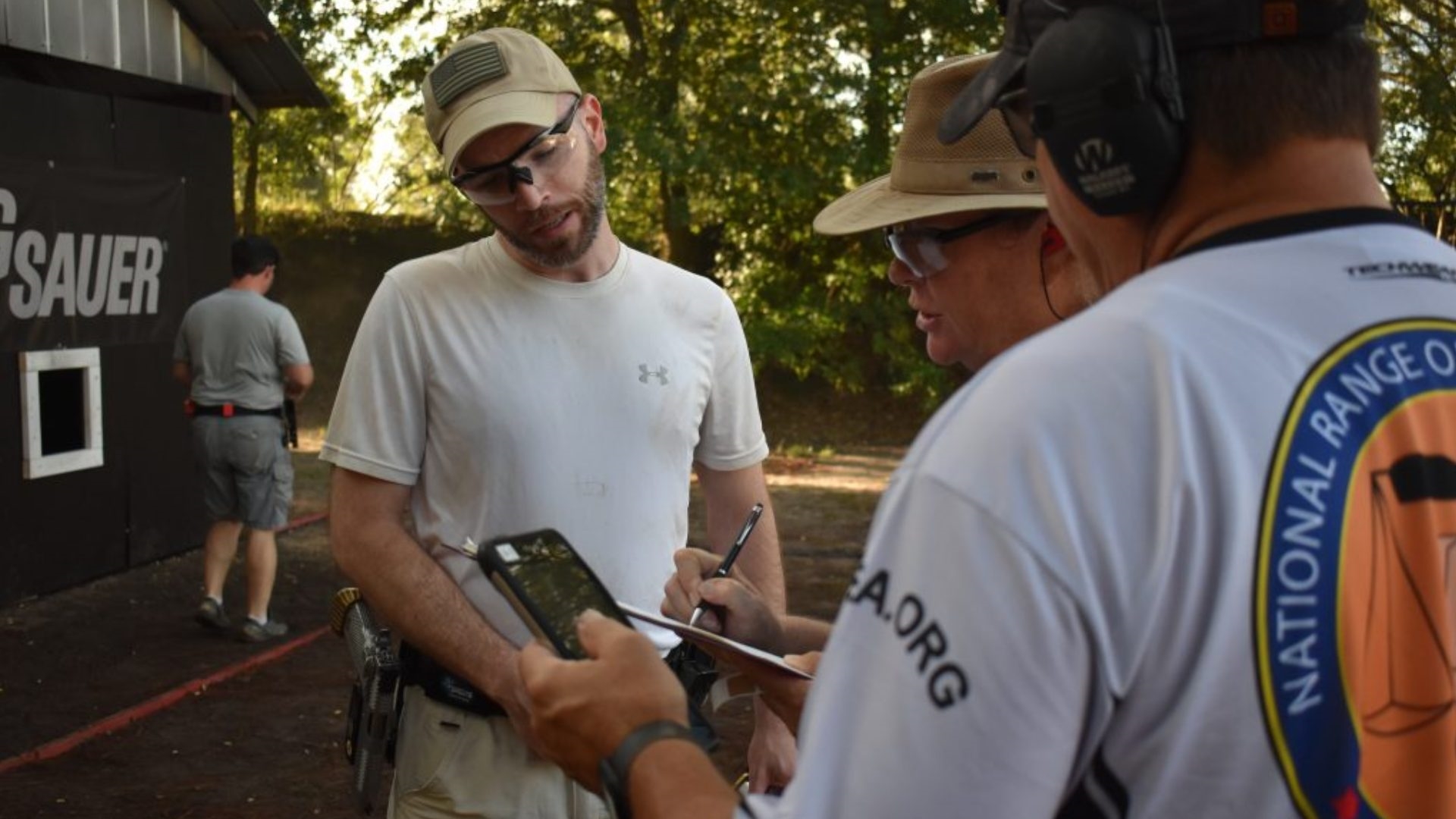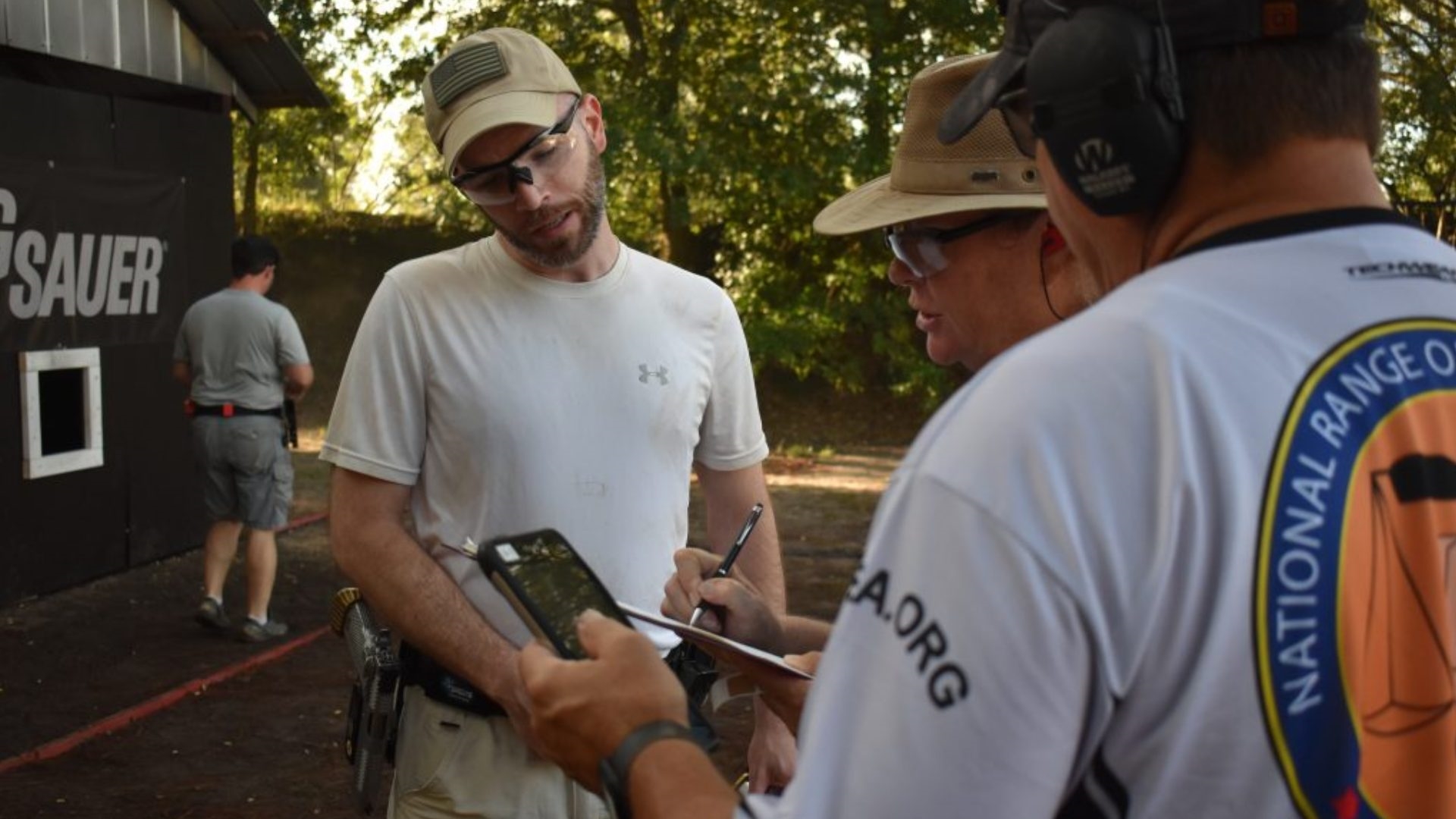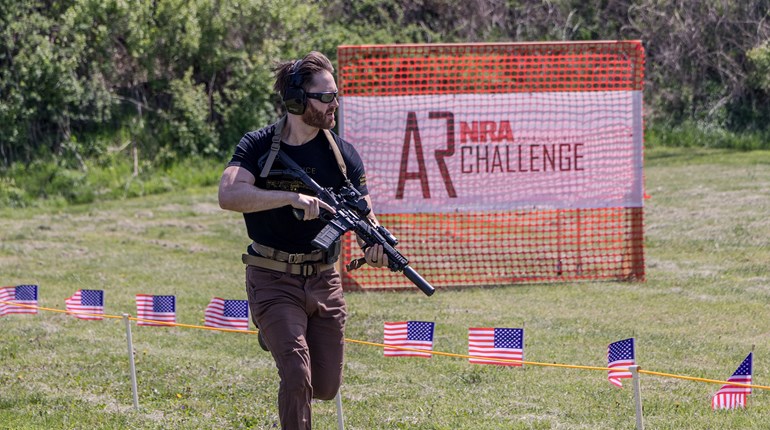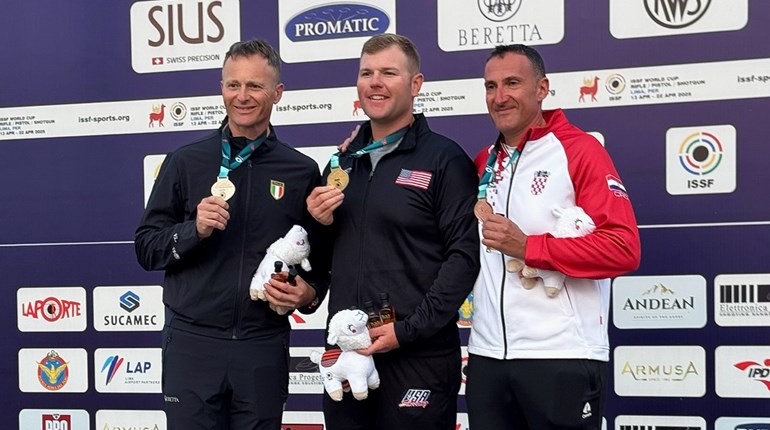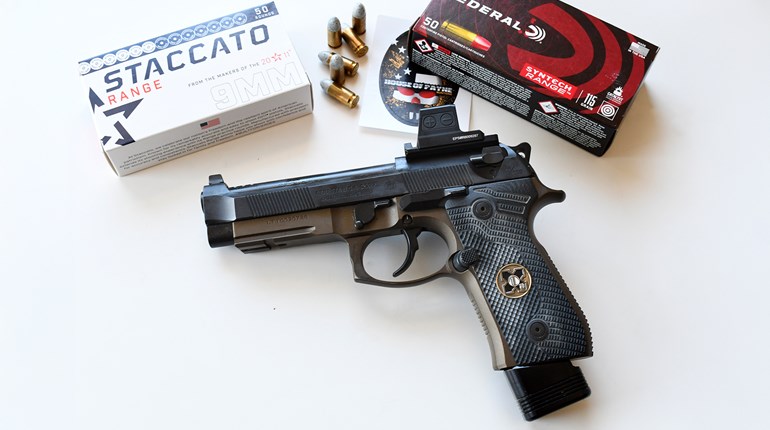
Kelly Reisdorf, the new CEO of USA Shooting, has worked in the gun industry—firearms and ammunition—for most of her career. Notably, she spent more than 15 years at Vista Outdoor (and predecessor company Orbital ATK) in multiple roles, including chief communications officer and general manager. Prior to working in the firearms, ammunition, aerospace and defense industries, she served in the U.S. Marine Corps.
She was named the permanent CEO by the USA Shooting Board of Directors in July after working as the interim CEO since March 2024.
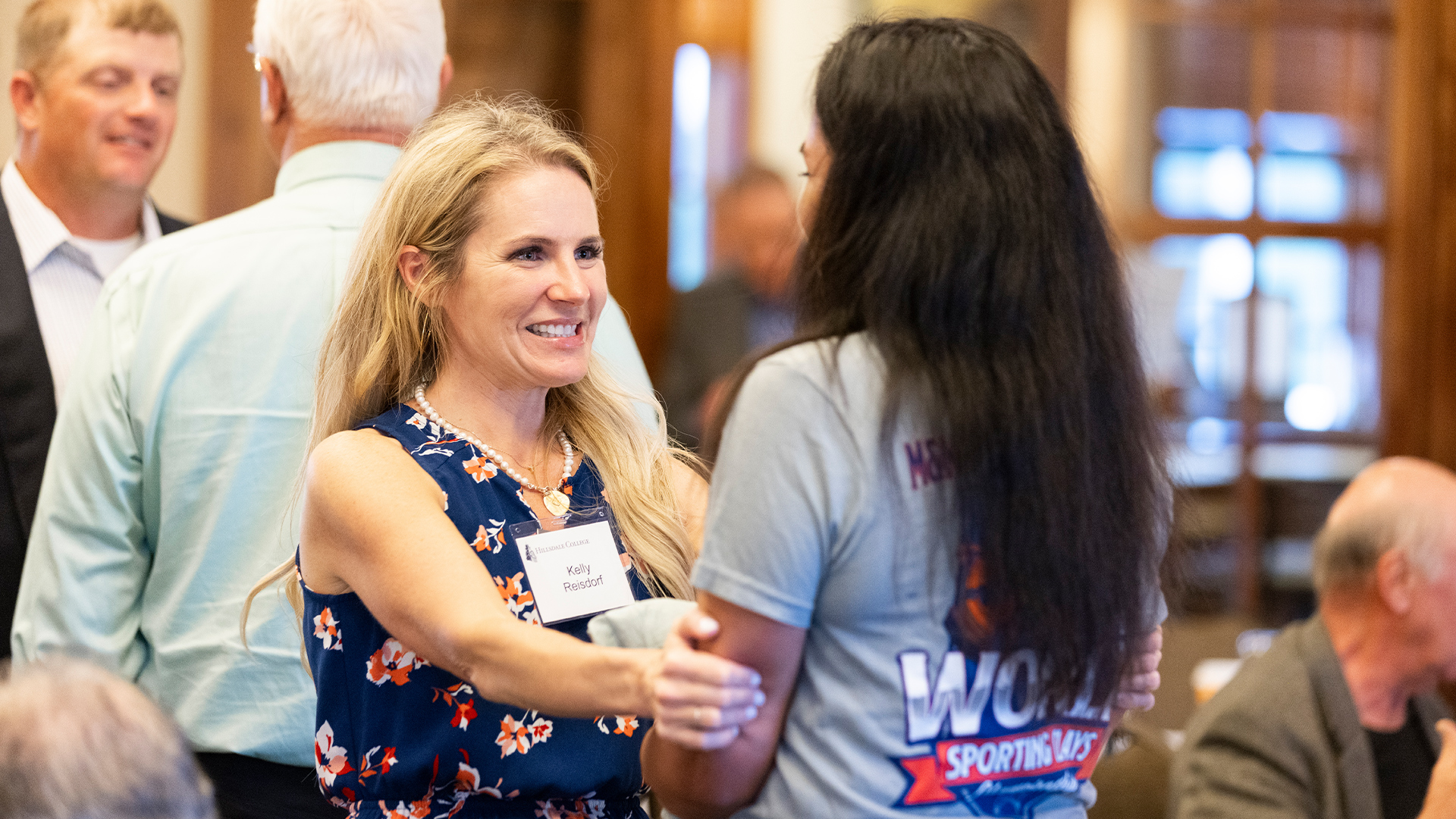
I had the opportunity to sit down with Reisdorf at the Châteauroux Shooting Center in France during the 2024 Olympics on the fifth day of the shooting events. Here is my interview with her, only edited for length and clarity.
SSUSA: How did you end up at USA Shooting?
Reisdorf: I know several people on the foundation side of USA Shooting, which was experiencing some turnaround, and was asked multiple times if I would come in and help the organization. Although I don’t come from the Olympic movement and I don’t have a competitive shooting background, I am an avid firearms user and enthusiast, and I hunt and shoot with my kids. The USA Shooting brand is awesome. It should be the darling of the shooting sports industry. And I think it can be.
SSUSA: What do you think about your first Olympic experience so far?
Reisdorf: It’s exciting. The range facilities in Châteauroux are incredible. However, it’s a mixed bag—at first, I thought I would like us to be at the main Paris Olympic Village, but there are some benefits to being away from the city, the traffic and the craziness. Although, it would be nice if the athletes were in the main Olympic Village, too.
SSUSA: The fact that the shooting events are in Châteauroux instead of Paris, the way I understand it, we didn’t have much of a choice in the matter. Is that something that you would like to get a better handle on in the future?
Reisdorf: We’re actually doing a lot more proactive work way up front for Los Angeles 2028 to make sure that we have a legacy shooting range facility that is co-located with the rest of the sports for Los Angeles. This experience was a huge lesson learned to make the Los Angeles 2028 Olympics better.
SSUSA: Any thoughts regarding our first four days in shooting events at the Paris Olympics?
Reisdorf: You know, from the rifle and pistol standpoint, we are up against some tough competition. Derrick Mein shot amazing with the three groups of 25 perfect targets in men’s trap. That was absolutely incredible. There are some amazing competitors here, too. To me, the whole level of competition across the board is so much higher than I had thought. I’m looking forward to watching skeet as well. We’ve got a really strong competitive showing for men’s and women’s skeet, as well as for mixed team skeet. (Note: USA Shooting athletes went on to earn five Olympic medals in Châteauroux later that week, including four in skeet events: one gold earned by Vincent Hancock, two silvers earned by Conner Prince in men’s skeet and the duo of Vincent Hancock and Austen Smith in the team event, plus a bronze by Austen Smith in women’s skeet. Additionally, Sagen Maddalena secured the women’s 50m smallbore 3-position rifle silver medal.)
SSUSA: Team USA hasn’t been competitive in pistol for a long time. How do you plan to improve our competitiveness in pistol, as well as in rifle and shotgun?
Reisdorf: Regarding pistol and rifle, there’s a real range access issue in the U.S. This fact is not new to industry folks. We have a constant battle for range space across the country. But for ranges where athletes can train at for rifle and pistol, there’s a real shortage. So, we are geographically limited by that fact. USA Shooting does have a resident program that I would like to make some improvements to, where key athletes can live and train at the training center in Colorado Springs. With improvements to that program, we can have a stronger talent lineup.
Now for shotgun, that’s different. There are many more places for the athletes to train. There’s also World Cup facilities. You’ve got West Palm, you’ve got Tucson. Our shotgun athletes inherently have better ranges to train at. Part of it is fundraising, which is so important to us, so that we can help these athletes attend as many World Cups as they possibly can, and have as much training on a world stage against our top competitors as possible during the quad. You’ve got that first two years in the quad, and then there’s that back half where that funnel narrows, when the national team selected. It’s all about getting them out there to receive as much training and exposure as possible against great competitors from China, Korea, India and so forth. That’s how we’re going to up the talent level across the board.
SSUSA: Where do you see NRA fitting into your future plans for USA Shooting?
Reisdorf: There is a long history as you know with the NRA and the team. I am hoping to work more with the NRA. We have a lot of similar goals in terms of our athletes, who embody the epitome of discipline, excellence and safety in terms of marksmanship. And that’s what the NRA wants as well. Our athletes are incredible role models for the whole industry in terms of what good looks like for being a marksman. I’d like to do more with NRA on the development side. There are opportunities to partner with the NRA and other programs. It’s all about getting to more people, and having a better experience when a 12-year-old or 13-year-old kid sees a Derrick Mein or Vincent Hancock and says to their parents, “Hey, that’s kind of cool. I think I might want to do that.” What I want us to do is show up better in the outside world so when that kid says, “I want to try that,” we have programs in place across the country that can meet those kids where they’re at, and then bring them into the family—if competitive shooting is something they might want to try. (Note: The NRA Foundation awarded $252,000 to USA Shooting specifically for shotgun ammunition in 2022, along with $250,000 in 2023 for essential expenses and another $250,000 earlier this year in preparation for the Paris 2024 Olympics.)
SSUSA: What about your partnership with Hillsdale College?
Reisdorf: I plan to continue that. Hillsdale is great—they’ve spent more than $10 million for a rifle and pistol range where they can host world-class competitions. I’m excited for that. Hillsdale is also adding trap and skeet fields to meet international compliance for skeet competitions and things like that. That is going to kind of bring them on the map a bit more. We can have more competitions with Hillsdale and bring in talent from all around the world.
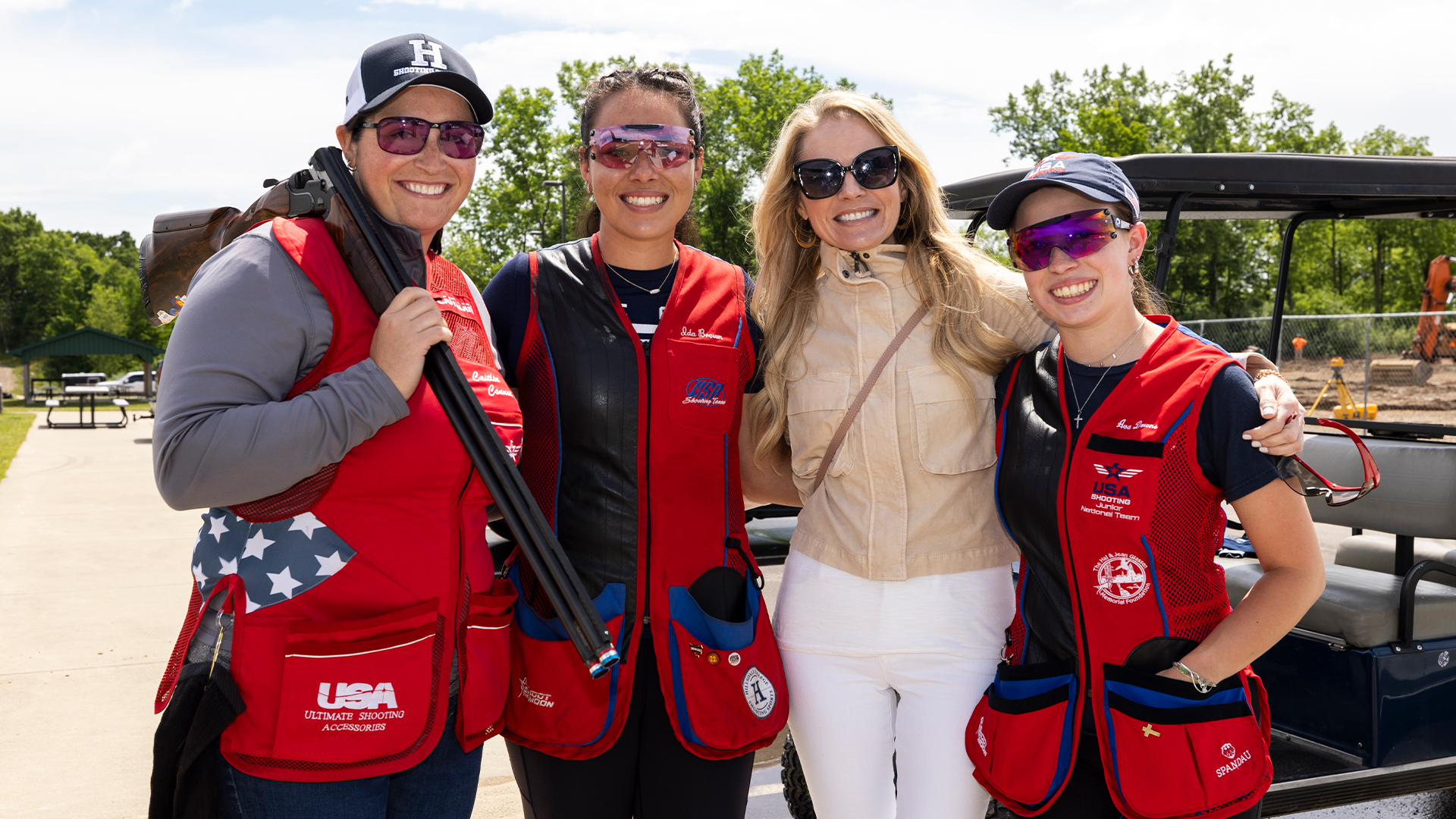
SSUSA: Are you talking to U.S. Olympic Committee about getting more funding?
Reisdorf: I’ve spent about half of my time for the last six months now working on that. The USOPC is going through all kinds of transformation after the Nasser scandal and other things. Part of that is the increased oversight that Congress placed on the USOPC in terms of what they have to expect from an accountability standpoint from each of their National Governing Bodies, including USA Shooting. So, I’m really focused on getting us out of the penalty box and in good graces from a governance and compliance standpoint, as well as in terms of our athlete development and what we can do for the U.S. with bringing in more medals. We have a funding model this year that has experienced mixed results, which is challenging. The other part of it is that we have far greater line of sight into where the funds are applied at an athlete level, so that these funding dollars from the NRA, from SCI and all of our amazing supporters, including Hillsdale College—the USOPC can see how productive those dollars went towards competition success. I think that is pretty exciting. Our overall medal count for the United States is a big deal for the USOPC. Even though we don’t get as much press, it’s definitely worth arguing for.
SSUSA: What do you mean by “penalty box?”
Reisdorf: What I meant is that due to the turnaround status, all National Governing Bodies within the ecosystem of the USOPC, they have increased accountability and reporting requirements coming from Congress and other bodies. I’m working to get USA Shooting caught up with those things, just like the other sports are, too.
SSUSA: The USA Shooting Board Chairman, Jim Mitchell, said that you are straightforward in your leadership style and results oriented. Is that a different approach than what was at USA Shooting before?
Reisdorf: Well, I can’t comment on what former leaders were like, but I am very focused on a few key results around our financials and increased spending for athletes, more attendance and more people at world competitions. I want us to have a larger presence at these competitions over the next quad to have an even stronger medal count showing for Los Angeles 2028.
SSUSA: The things you want to do, all that comes down to funding.
Reisdorf: It does, but it also makes sure that when we have increased funding, that we are applying those scarce dollars in the best and highest use, which is USA Shooting’s mission—to represent the country on the international stage.
SSUSA: What do you think you can do to increase funding for USA Shooting?
Reisdorf: Well, with the USOPC, there’s more work to be done in terms of showing our value, where we sit in the whole ecosystem and what we contribute. For example, looking at the last four Olympic Games, imagine where the United States would rank in total medal count if shooting was not a certified sport. That is a significant impact on all of Team USA. So that in and of itself shows that we really matter. Secondly, I want us to be more productive with the dollars. Our overhead costs continue to go down and I want to see that trend continue.
SSUSA: Where do you see USA Shooting by the time the Los Angeles 2028 Olympic Games arrive?
Reisdorf: I would like to see us have a stronger lineup for our pistol and rifle programs in terms of talent and athletes that can compete, and continue to make our shotgun program in trap and skeet even stronger. As well, I’d like to bring the USA Shooting team and the brand back into the industry fold. I think they can work together better, and I’m really focused on trying to do that, because there’s been some history and I want to fix a lot of those things. I can’t fix everything, but I’m going to try.
Learn more about USA Shooting at usashooting.org.









